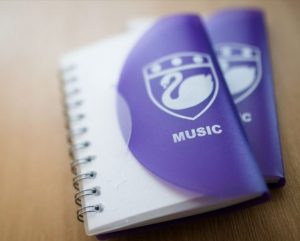Music at Paulet

What do students learn in Music in Key Stage 3?
In Key stage 3 students explore and learn about the key elements of music a how these connect together to create the music we listen to and enjoy .
Students learn how to develop ideas, refine their work and realise their intentions.
Through a series of musical units and tasks students gain knowledge, in how to use and apply these elements using a variety of musical devices and techniques.
Students explore a wide range of music and learn to analyse music from a variety of styles and genres.
Students participate in a range of independent activities as well as group and paired work.
Students learn how to evaluate and reflect on their work and the work of others, including their peers.
How do students learn in KS3 Music?
Units of work are designed and developed to build on prior musical knowledge and understanding.
Through practical, written, discussions and aural activities students are taught a broad range of processes and techniques that enable them to be creative.
Students are encouraged to learn from their mistakes and take creative risks.
Learning activities in music include –
Listening and responding to music
Exploring the work of others.
Making and exploring musical connections.
Experimenting with ideas, themes and musical devices.
Evaluating and reflecting.
Developing and improving instrumental skills
What topics are covered and when in each year group? What is the sequence of teaching?
| Year 7 | Year 8 | ||
| 3 x 7/8 Classes | Autumn 1 | The Elements of Music | The Minuet |
| Autumn 2 | Pentatonic Music | Theme & Variation | |
| Spring 1 | Composing melody | The Blues | |
| 3 x 7/8 Classes | Spring 2 | ||
| Summer 1 | |||
| Summer 2 |
How are students assessed in KS3 Music?
Throughout lessons students receive regular feedback on their work.
Students are given written and verbal feedback, where appropriate.
Assessment is diagnostic and help students reach for the next level.
At the end of unit students work is formally assessed against shared success criteria.
Each half term students receive a holistic grade in line with the school’s data collection policy
HomeLearning
Home Learning is set to complement and support the learning taking place in lessons.
Activities include:
Listening and responding to various styles of music
Researching genres and artists
Completion of work
Continuation of classwork
Instrumental rehearsal where appropriate
Extra-curricular opportunities
Music clubs
Orchestral rehearsals
School Choir
Christmas Carol Concerts
JTMAT integrated performances
Annual Talent Show
School productions
Cultural capital
Students are involved in discussions that build on questioning and are encouraged to critically question and challenge the musical world around them.
Students are encouraged to think like an composers and performers.
Students develop skills to communicate both visually, verbally and aurally.
Students study their heritage as well as explore the musical and social cultures and practices of other areas of the world.
They develop personal, social, and cultural understanding through their studies within music.
Through musical exploration students are encouraged to develop tolerance for different cultures, identities, and protected characteristics.
The performing arts department promote music across the curriculum and explain the importance of the Arts in the wider society and industry.
Careers
Within the teaching of music, teachers frequently link the curriculum and activities to industry and the creative industries.
Students are given examples of how music and music therapy fit into the world and how ‘The Performing Arts’ impact on our lives.
In year 8 careers and careers in music are discussed as part of the year 9 option process.
Projects are also designed to reflect the numerous disciplines and occupations with the musical working world, such as composers, technicians, teachers, peripatetic teachers, recording engineer, performer, session player and many more.
